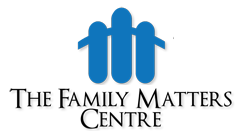Reflections on Nationwide Discussions with Anthony Douglas, CEO Cafcass
It has been a privilege and a pleasure to work and teach alongside Anthony Douglas, CEO of Cafcass UK (Children and Families Advisory and Support Services), over the last month.
Fresh from the UK family law reform environment, Anthony Douglas described to us the work of his organisation, Cafcass with 150,000 families and children going through separation and transition in Britain each year. Over 100 different languages are spoken across the families with which his staff work – multiple ethnicities, cultures, dialects, assumptions and adaptation combine to deliver a picture of intense complexity
In our discussions, Anthony and I found that, despite the different populations and cultures in our two countries, family law reform creates a constant in both environments– the need to change.
We no longer live our family life as our grandparents did. Petitioning for divorce and having to prove the grounds of fault gave way to family law reforms which no longer insisted on blame. Today, embittered custody disputes are being overtaken by processes which promote child mental health and which put responsibility back to parents along with non-adversarial assistance. Following on the trends of other jurisdictions, unless the issue is urgent, our families in NZ must now follow through a mediation process to sort out their children’s care. Only if this is not successful can a dispute of this type can now be considered in court.
Balancing the Needs of Separated Parents and Their Children
Strong research trends prove that children do better when their needs are understood by their parents. As emphasised by our Minister for Justice, Hon Judith Collins, the needs of children are the highest priority in these reforms.
A child’s involvement in the process of family dispute resolution (FDR) can help parents, who feel there is no ground for conciliation, to disarm and find agreement about their co parenting arrangements.
Understanding what is meant by child inclusion in disputes about parenting formed the core of Anthony and my joint training of NZ professionals throughout NZ over this past month.
Child inclusive practice is a flexible process. It can stretch from the focus on the subject of the children in mediation with parents, right through to children being actually involved in discussions, if appropriate.
Professional training and practice in child inclusion is of the utmost importance in keeping this process ethical and safe for families. Highly sensitive tools for child inclusion and family facilitation have been developed by Cafcass and have been authorised by Anthony Douglas as part of the training in child inclusion and family facilitation offered through The Family Matters Centre. He has endorsed this NZ training which he describes as ‘crucial for the success of our NZ reforms’.
Perception vs Reality from a Child’s Perspective
In child inclusion and family facilitation as part of dispute resolution, parents are encouraged to look at their experience of separation through the lens of their child’s position. A skilled practitioner will listen to the adult story with care and attention and then assist parents to hear it through their child’s perception.
Without needing to ask the child “to choose” one set of arrangements over another, we can still find out how that child is feeling. Helping parents to see their child’s position within a framework of a development attachment paradigm is key to an agreement which protects child resilience etc.
We are all implicated in the need to change and adapt. Finding the route to make these changes in family law, personally and professionally, can be captured in an FDR provision which has as its hallmark the prioritising of the well-being of children in the context of their rearranging families.
Our NZ families deserve nothing less. The results of careful planting and tilling of the soil at this time will be evident as the seasons move on and our children grow up to be healthy and secure.
